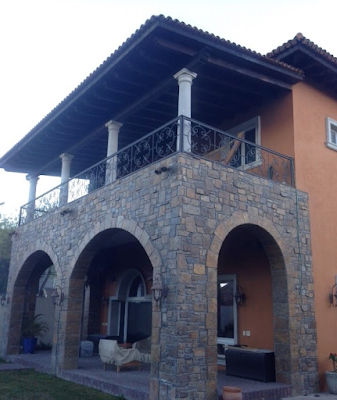We're in an IDENTITY CRISIS!
Over the past 500 years, cultural transitions happened over dozens of years. Any influence from outside cultures took years to infiltrate into another culture. Communities and cultures could go relatively untouched from outside influences if they wanted to. Only the best things made it through the protective boundaries of society. This is 2016 though, and things have really changed!
The World Wide Web was created 25 years ago. Facebook has existed for 12 years, and actually been widely used for even less than that. In 2012, the platform hit one billion users. It's at one-and-a-half billion now. Instagram has 400 million active users.
There is no longer a way to stay away, and no longer a place to hide. If you were to tell me that you have never logged in to Facebook, Twitter, Instagram, Pinterest, WhatsApp, or Skype, I could call you a liar. I would lost my trust in you. I say that not only because the odds of you not using any of these are impossibly low, but also because they're vital for progress. Tell me an important event, service, practice, or product that you know of, and I'll tell you how social media has or can influence it.
If you don't believe in social media and global connectivity, I worry for you.
Back to the idea of of Identity... I believe principles of economic globalization need to be implemented into our social media practices. That is the way to solve this identity crisis we're currently in.
GLOBALIZATION
During the summer of 1999, I moved to Monterrey, Mexico. What started out as a possible one-year adventure has turned in 17 years and counting. I went to a private, international, bi-lingual school. I associated myself with people from over a dozen cultures and nationalities, and who have now worked in dozens of different industries. In Mexico, we built a house. My father was paid in American wages. The house was made with Mexican labor. The tile, wood flooring, light fixtures, and furniture were all imported from southern Mexico and Western Europe. The inspiration for the house came from a northern California home seen in an international magazine. The design is rural Spanish.
This is OUR house. This is the Cottrell's home. We bought a fixer-upper, and have spent the past 7 years remodeling and making it exactly what we all want. Did we want the house painted to match the color of the Cempazuchitl flower (Mexico's flower of death)? Yes! Did we want a balcony on all sides of the house in order to watch fireworks and listen to mariachis while sitting in hammocks? Yes! Did we want outdoor entertainment? Yes! So we put in outdoor speakers, a pool, a tree house, a Mexican grill, a Hawaiian shaved ice machine, and we hand-built an Italian brick-oven pizza.
My point is... we feel proud and comfortable with it because it's what we wanted! We were able to take the best of every culture we knew of, and we can identify with it! Is it still a Mexican house? Does it still have security measures other Mexican houses have? Does it still meet Mexican construction and zoning laws? Does it match all the other houses in the neighborhood? The answer is yes to all of these.
We've taken what we love, and introduced them into the culture we live in, and it works!!!
Clotaire Rapaille, in The Global Code, argues for a social globalization. He brings up the interesting concept of a "Global Tribe". There is such thing as a Global Tribe, which is the group of people in this world that have extended beyond borders and become a conglomerate culture, regardless of where they're from. These people have found unifying bonds between themselves over the internet. It's these people that have paved the future for globalization, and it's where we all need to become a part of.
Our future is in the unification of people. If we can unify our language and communication (social media), proficiency, nationalism (for whatever country we live in), ideologies, economy, and culture, we will succeed. Just like how our economy hinges on our ability to work together in the future, our lives depend on our ability to join a Global Tribe.
When we use social media, we need to glocalize. We need to globalize, locally. In order to feel comfortable with those around us and how the world is changing so fast, we need to allow others' opinions and beliefs to influence us, but make sure we DON'T LOSE OUR OWN IDENTITY. If you can learn to be on the same page as all your followers and your friends, you'll learn to take the best from their lives and improve your own. Regardless of if they live in Mexico, USA, Russia, England, Iceland, or Chile, they have something to offer you. Globalize and become like them, but keep it local and keep within the bounds of your own society's morals and standards, and we'll all understand each other better.
That is why globalization is the future's backbone!



I feel like BYU is a great microcosm of this phenomenon, just because so many of us do identify with a different culture because of our missions. I love Kiribati culture, and sometimes do or say things that are very Kiribati. I know I'm not the only one. I like the globalized culture, because it allows us to take our favorite parts of different cultures and ideas and blend them into something of our very own.
ReplyDelete